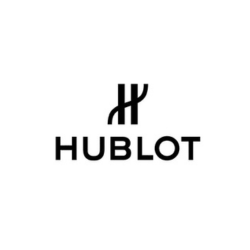Buying Advice
Do IWC watches retain their value?
When it comes to luxury timepieces, discerning collectors and enthusiasts often wonder about the investment potential of their acquisitions. Among the prestigious brands that grace the wrists of watch aficionados worldwide, IWC Schaffhausen holds a distinguished place. Known for their exquisite craftsmanship, innovative engineering, and timeless design, IWC watches are not just accessories but works of art. However, the critical question for many remains: do IWC watches retain their value over time? In this comprehensive analysis, we will delve into the various factors that influence the value retention of IWC watches.
Understanding Value Retention
Value retention in the context of luxury watches refers to the ability of a watch to maintain or even increase its worth over time. Several factors contribute to this, including brand reputation, historical significance, rarity, condition, and market demand. A luxury watch that retains its value well can be considered a sound investment, not just a stylish accessory.
The Legacy of IWC Schaffhausen
Founded in 1868 by American watchmaker Florentine Ariosto Jones, IWC (International Watch Company) Schaffhausen combines American pioneering spirit with Swiss precision. Over the decades, IWC has established itself as a leader in luxury watchmaking, renowned for its technical innovation and elegant designs. The brand’s commitment to quality and excellence has solidified its reputation, making it a favorite among collectors.
Factors Influencing Value Retention of IWC Watches
- Brand Prestige and Heritage
- IWC’s long-standing heritage and consistent reputation for quality play a crucial role in value retention. Collectors often seek brands with a storied history and a legacy of innovation, and IWC fits this criterion perfectly. Watches from heritage brands like IWC are generally perceived as more valuable due to their established market presence and the brand’s commitment to maintaining high standards.
- Craftsmanship and Materials
- IWC watches are known for their meticulous craftsmanship and the use of high-quality materials. From the intricate movements to the durable cases, every component of an IWC watch is crafted with precision. This attention to detail and the use of premium materials ensure that IWC watches remain in excellent condition for decades, which positively impacts their resale value.
- Limited Editions and Rarity
- Limited edition models and rare pieces often retain their value better than standard production models. IWC frequently releases limited edition watches that celebrate significant milestones, partnerships, or innovations. These limited runs create a sense of exclusivity and desirability among collectors, driving up demand and, consequently, value.
- Historical Significance and Iconic Models
- Certain IWC models have achieved iconic status due to their historical significance. For example, the IWC Pilot’s Watch, with its roots in aviation history, or the IWC Portugieser, known for its large case and precision, have become highly sought after. Watches with a compelling story or historical relevance tend to hold their value better.
- Market Trends and Demand
- The luxury watch market is influenced by trends and consumer preferences. While some brands may fall in and out of favor, IWC has maintained a steady demand due to its consistent quality and timeless designs. Market demand can fluctuate, but IWC’s strong brand identity helps mitigate drastic drops in value.
- Condition and Maintenance
- The condition of a watch is paramount in determining its resale value. IWC watches, known for their durability, can retain their condition well with proper care. Regular maintenance, including servicing by authorized professionals, can help preserve the watch’s functionality and appearance, ensuring better value retention.
- Authentication and Documentation
- Provenance is vital in the luxury watch market. Original paperwork, service records, and authenticity certificates significantly enhance a watch’s resale value. IWC’s attention to detail in providing comprehensive documentation for their watches adds to the assurance of authenticity, which is crucial for buyers and sellers alike.
Case Studies of IWC Models
To provide a more concrete understanding of value retention, let’s examine a few notable IWC models and their performance in the secondary market:
- IWC Pilot’s Watch
- The IWC Pilot’s Watch collection is one of the brand’s most recognizable lines. Known for its robust design and aviator heritage, models like the Big Pilot’s Watch have shown impressive value retention. Limited editions and vintage models from this collection often fetch high prices at auctions and among collectors.
- IWC Portugieser
- The Portugieser line, with its distinctive large case and clean dial, is another strong performer. Models like the Portugieser Chronograph and Portugieser Automatic have demonstrated solid value retention. Limited editions and models with unique complications are particularly sought after.
- IWC Aquatimer
- The Aquatimer collection, designed for divers, offers a mix of professional functionality and luxury. While not as strong as the Pilot’s or Portugieser lines, certain limited editions and vintage Aquatimer models have appreciated in value, especially those with unique features or collaborations.
- IWC Da Vinci
- The Da Vinci collection, known for its elegant and complex designs, has a more niche appeal. However, models with intricate complications like perpetual calendars or limited editions can retain value well. The Da Vinci Perpetual Calendar, for instance, is a noteworthy model in terms of value retention.
The Future of IWC Value Retention
Predicting the future value retention of IWC watches involves considering several dynamic factors. The ongoing commitment of IWC to innovation and quality will likely continue to bolster the brand’s reputation. Additionally, the growing interest in vintage and limited-edition watches suggests a positive outlook for IWC’s value retention.
However, it’s important to note that the luxury watch market can be influenced by broader economic conditions, changes in consumer preferences, and trends within the watch industry itself. Staying informed about these factors and understanding the specific attributes of individual models can help potential buyers make informed decisions.
Tips for Maximizing Value Retention
For those looking to invest in IWC watches with an eye on value retention, here are a few tips:
- Choose Iconic Models: Focus on iconic and historically significant models within the IWC lineup, as these are more likely to retain or appreciate in value.
- Limited Editions and Rare Pieces: Seek out limited edition models or rare pieces, as their scarcity can drive up demand and value.
- Maintain and Service Regularly: Regular maintenance and servicing by authorized professionals can preserve the watch’s condition and functionality, crucial for retaining value.
- Keep Documentation: Preserve all original paperwork, authenticity certificates, and service records, as these add to the watch’s provenance and appeal to future buyers.
- Buy from Reputable Sources: Purchase from authorized dealers or reputable secondary market platforms to ensure authenticity and avoid potential issues with counterfeit or misrepresented watches.
Conclusion
IWC Schaffhausen stands out as a prestigious brand with a strong track record of value retention. While not all models will appreciate equally, the brand’s commitment to quality, historical significance, and strategic releases of limited editions contribute positively to the value retention of IWC watches. By understanding the factors that influence value retention and making informed purchasing decisions, collectors and enthusiasts can enjoy both the aesthetic and financial rewards of owning an IWC timepiece. Whether you are a seasoned collector or a new enthusiast, an IWC watch represents a blend of timeless elegance and sound investment potential.






